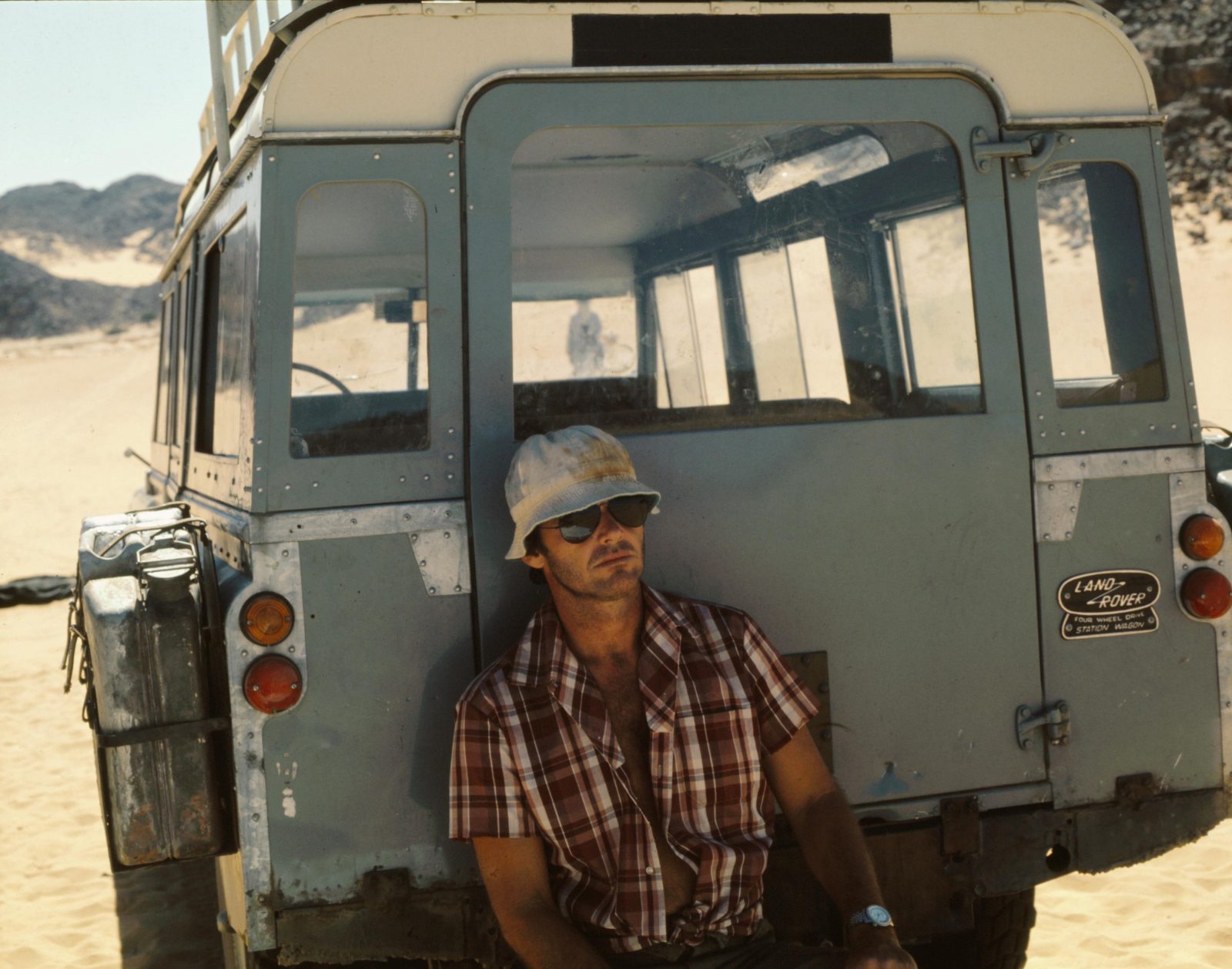




Dir.: Michelangelo Antonioni; Cast: Jack Nicholson, Maria Schneider, Jenny Runacre, Ian Hendry; Italy/France/Spain 1975, 126 min.
In nearly all of Antonioni’s features the leading protagonists go missing: Aldo in El Grido jumps from the tower to his death, Anna in L’Aventura simply disappears on an island, having simply evaporated into thin air. And then there is his long time muse, Monica Vitti, who loses her identity during Deserto Rosso and L’Eclisse. In Professione: reporter, journalist David Locke has already lost his self identity before the film starts; assuming the guise of dead man only underlines his inner emptiness. Antonioni’s third and final feature in English, after Blow Up and Zabriskie Point, is dominated by the images, the camera circles around a man between two deaths.
David Locke (Nicholson) the titular character, lands in a desert outpost in Chad, trying to interview rebels, the heat makes him indolent. With his wife and adopted son behind in London, along with his TV producer, Locke has hit rock-bottom. He can’t even believe in his profession anymore: having sold out to market forces. Finding the corpse of colleague, who has died of a heart attack in his derelict hotel room, Locke only needs one glance at the dead man’s face to realise he could easily pass as Robertson – not that he’s particularly interested in impersonate him more than anyone else. In Roberton’s blue shirt, we watch Locke swap their passport photos – as the fan on the ceiling bears witness.
Finding a plane ticket to Munich in Robertson’s belongings, David flies to Germany, after a short incognito visit to London. In Munich he picks up a weapons catalogue from an airport locker, and is met by two men who give him an envelope containing a substantial amount of money. David has replaced Robertson as a gun-runner, serving a revolutionary African group. A further meeting in Spain is agreed by the the trio. Meanwhile, in London, Locke’s wife Rachel (Runacre) and his producer Martin Knight (Hendry) try to contact Robertson, to enquire about David’s state of mind when he died. In an editing room, Rachel watches clips from her husband’s old documentaries, including one featuring a brutal shooting. In Barcelona, Locke manages to avoid his wife, the police, and the two African clients. He meets a nameless architecture student (Maria Schneider), and they go round Gaudi buildings together. They set off for a meeting with the Africans in Algeciras, an oil port in southern Spain.
Their relationship is in the here and now, but Locke, sensing the danger of having to evade the trio , shakes her off, promising a meeting in Tangiers. But when he arrives in the Algeciras hotel, she is waiting for him in the room. “What do want with me?”, he asks her exasperated, before the last act of the drama, underplayed, as undramatically as possible – just like the rest of the feature.
Locke hardly says a word in this monosyllabic film: conversations are fragmented, the last part play out like a silent film. The only reality is nature, as the protagonists’ significance shrinks away. The last seven minutes belong completely to Luciano Tovoli’s masterful camera: it pans through the grilled window of Locke’s room, and out into the piazza in front of the hotel; looking around, before returning to the room before everyone else: as in Cronaca di un amore the eliptical movement symbolises death. It is like watching the whole feature again. AS
NOW ON PLAYER from 5 AUGUST 2024
https://youtu.be/him17sDL2wE